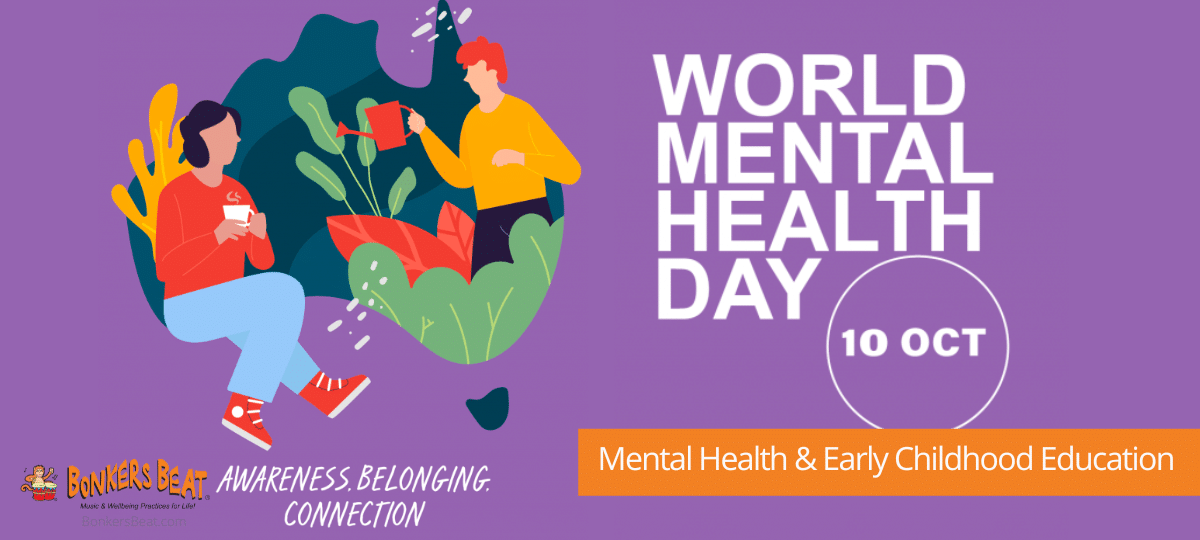Mental health challenges can impact anyone, and next week is Mental Health Week, with World Mental Health Day taking place on 10 October, 2023.
This week plays a crucial role in reminding us all of the importance of nurturing our mental health and wellbeing, as well as looking out for those around us.
The Significance of Mental Health Week & World Mental Health Day
Every day is important for caring for wellbeing, but Mental Health Week and World Mental Health Day can prompt us to take stock, and take action as needed. These events bring mental health into focus, encouraging conversations that can change lives. It’s all about destigmatising mental health issues, fostering empathy, and promoting awareness. This includes awareness of mental health challenges for children and educators in early childhood education too.
Understanding Mental Health & Early Childhood Education
Early childhood education lays the foundation for a child’s lifelong learning and development. During this crucial period, educators play a pivotal role not only in caring for children’s education, but also in supporting children’s emotional wellbeing and development. Mental health awareness in the early childhood education sector is vital for several reasons:
Creating nurturing environments: Early childhood education settings should create environments that promote emotional safety and wellbeing. This includes fostering positive relationships, effective communication, and empathy among educators, children, and parents.
Promoting educator self-care: Educators mental health is important, and burnout is a real concern in the sector. Plus, educators who are encouraged and guided to practisepractice self-care are better equipped to support the emotional needs of young children in their care.
Identifying mental health struggles: Educators are often the first to observe signs of emotional distress in young children. Being aware of the signs, such as changes in behaviour, withdrawal, or excessive anxiety, can lead to early intervention and support.
Managing Mental Health in ECE
This Mental Health Week, consider taking the time to talk about mental health in your early learning settings. You might like to cover topics that offer guidance and support. These are just a few ways you can help manage mental health in yourself and others in early childhood education.
Self-care for educators: Encourage educators to prioritise self-care, including regular exercise, quality sleep, and seeking support when needed.
Foster emotional literacy: Incorporate emotional intelligence into your programs. Use activities and games to show children how to identify feelings and express their emotions in a healthy manner, promoting self-awareness and empathy.
Parent involvement: Collaborate with parents to create a supportive network. Share resources and engage in open communication about emotional wellbeing at all times.
Training and resources: Provide ongoing training and resources for educators to recognise and address mental health concerns in young children and in themselves. This can include workshops, access to mental health professionals, and peer support.
You can discover more early childhood education mental health support tips here.
Mental Health Week and World Mental Health Day serve as essential reminders of the impact and importance of mental wellbeing for individuals of all ages. In early childhood education we want to provide children with the tools they need to enhance their wellbeing throughout life. By prioritising mental health education, we can ensure that children grow into emotionally resilient individuals, ready to face life’s challenges with confidence and strength. Remember, nurturing young minds begins with nurturing our own mental health.





